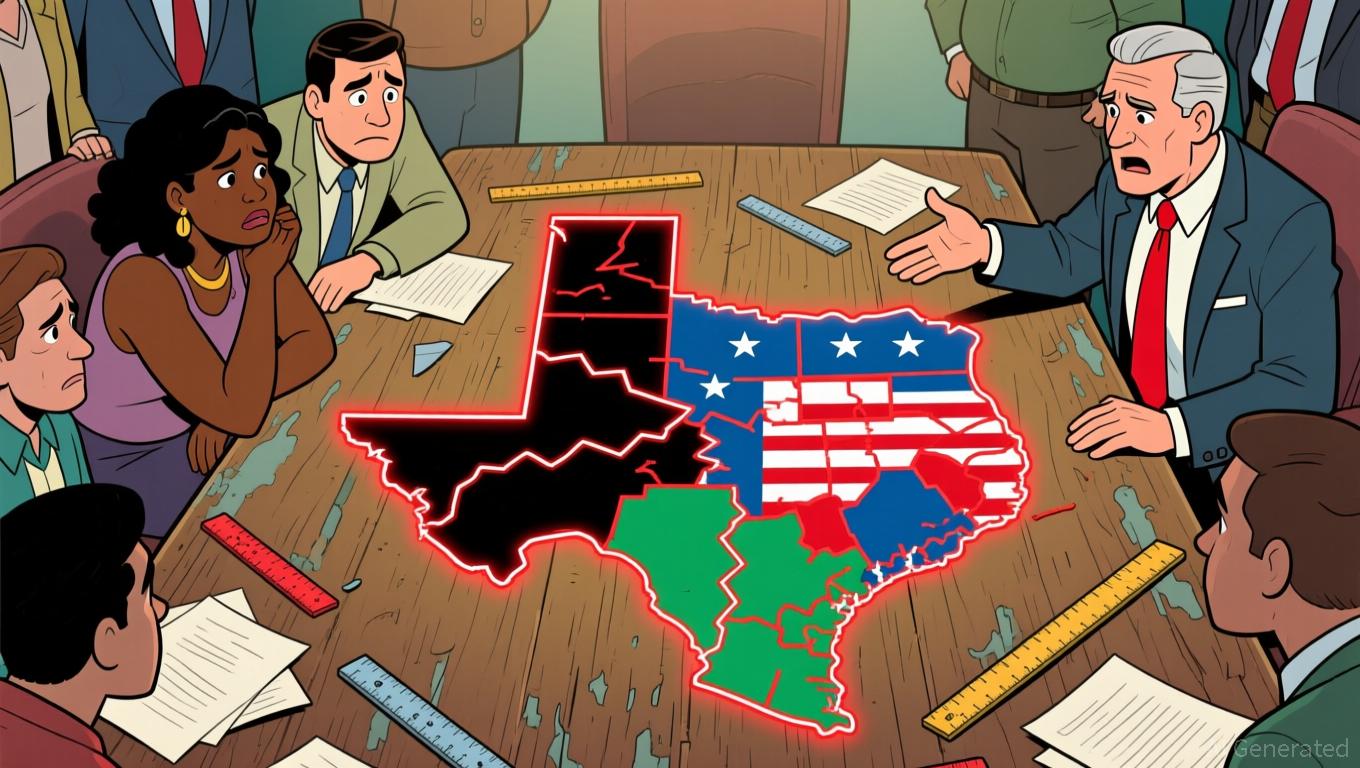Supreme Court Justice Samuel Alito
has temporarily suspended a lower court decision
that determined Texas' 2026 congressional redistricting map likely violates racial discrimination laws, allowing the map to remain in effect for the upcoming midterm elections. This order, issued just hours after Texas submitted an emergency request,
maintains the current situation
as the Supreme Court reviews whether to permit the use of the disputed map, which is projected to give Republicans five more seats. The action is consistent with the court's conservative bloc,
which has often preferred to postpone court involvement
in redistricting disputes that arise close to election dates.
The lower court had
decided by a 2-1 vote that the redistricting plan
, crafted by Texas Republicans, amounted to an unconstitutional racial gerrymander, pointing to "substantial evidence" of deliberate racial bias in its creation. The federal panel in El Paso that issued the ruling
based its findings on a Department of Justice memorandum
that directly associated the map's development with race-based factors. Texas, on the other hand,
contended that the lower court made a mistake
by not presuming the legislature acted in good faith and by confusing political motives with racial ones in the redistricting process. The state also stressed the practical difficulties of introducing a new map just 91 days before the March 2026 primary,
highlighting that candidates had already registered
under the existing map.
The redistricting initiative,
led by former President Donald Trump
and Texas Governor Greg Abbott, has sparked a nationwide political conflict. Texas is the first state to attempt mid-decade redistricting, a strategy now being followed by Missouri and North Carolina to strengthen Republican representation. Meanwhile, California voters
passed a ballot measure
intended to counter these actions by redrawing their own congressional districts to benefit Democrats, though legislative delays have hindered its rollout. The Supreme Court's involvement in the Texas case
has introduced more unpredictability to the election schedule
, with the fate of the map now in the court's hands until at least December.
Legal analysts point to the wider significance of this decision. Brian Smith, a political science professor at St. Edward's University,
observed that the case examines
the line between partisan tactics and racial bias in redistricting. The court's conservative justices
are confronted with a crucial choice
: whether the map's structure constitutes unconstitutional discrimination or simply reflects political strategy. Texas Attorney General Ken Paxton has
called for a prompt decision
by December 1 to prevent complications with the candidate filing deadline.
The League of United Latin American Citizens (LULAC), which
filed the lawsuit against the map
, denounced the Supreme Court's delay as a blow to fair representation, warning that it encourages further gerrymandering. The organization's legal challenge, which
claims the map weakens
the electoral influence of Black and Hispanic voters, is ongoing as the court deliberates its next move.
